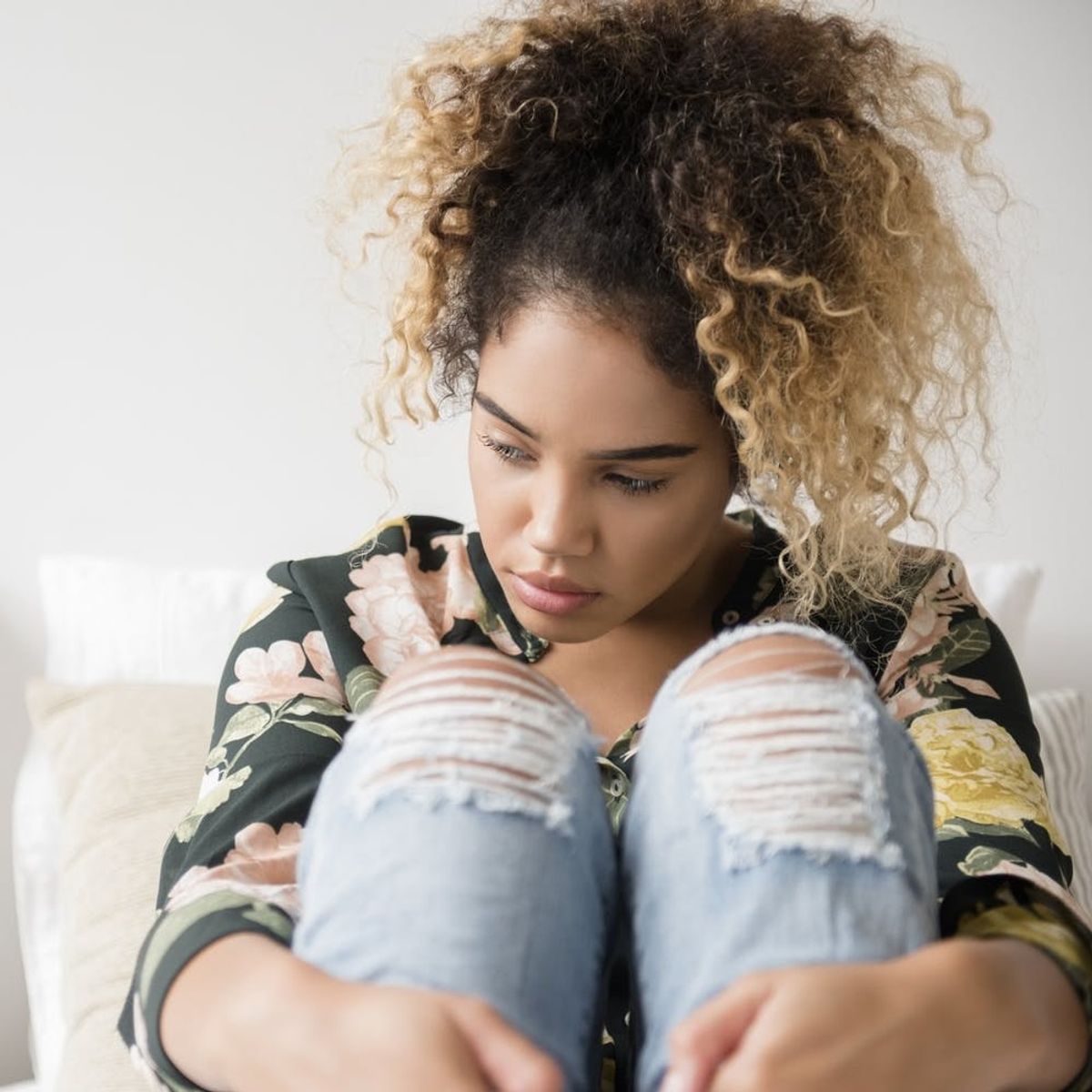Only the lonely.
One-Third of Women Fear *This* More Than a Cancer Diagnosis

Loneliness is something everyone can understand; even the most social person is likely to have felt emotional isolation at some point or another in their life. It’s such a human sensation that, for decades, we’ve seen it expressed through music (Three Dog Night’s “One”) and binge-worthy TV shows (think Offred in The Handmaid’s Tale and Eleven in Stranger Things), and relatably so.
While we’re big believers in the value of alone time and in the fact that it’s totally possible to be single and happy, we also acknowledge that being lonely (which is very different from being alone) can be really difficult. According to a new study from Everyday Health, loneliness is a persistent worry for many women — in fact, the stats will probably surprise you.

In October 2017, Everyday Health surveyed 3,000 women between the ages of 25 and 65 using an online questionnaire. The survey touched on wellness factors, personal values, wellness resources, wellness priorities, and more, giving researchers an overall picture of how American women are approaching wellness — and how that approach is working for them. There’s a lot to learn from the findings of the State of Women’s Wellness 2017 Special Report, but one factoid, in particular, caught our eye. According to the study, about one-third (32 percent) of respondents across all age groups are more afraid of loneliness than of a cancer diagnosis.
This is a sad — and if you ask us, at least, alarming — statistic. The team at Everyday Health offers an interesting analysis: “The more we thought about it, the more we considered the fact that, in an abstract way, as scary as a cancer diagnosis is, your support system can help you through it,” Everyday Health’s Vice President and Editor-in-Chief Maureen Connolly says. “Loneliness, meanwhile, involves social isolation combined with feelings of sadness. We can see why that’s frightening.”
What further surprised Connolly and the rest of the team is the fact that millennial women who participated in the study were actually more likely than Gen X-ers and baby boomers to name loneliness as one of their top three fears. Forty-two percent of millennial women say they are more afraid of loneliness than a cancer diagnosis, compared to 29 percent of Gen X-ers and 27 percent of boomers.
“Women are largely social beings,” says Connolly. “No matter what age, most women derive a lot of gratification from our relationships — your boyfriend or girlfriend, your spouse, extended family, friendships, work relationships, etc. Sharing our lives with others is a big part of what provides us with a sense of purpose and joy.”
Connolly emphasizes that it’s important to remember that loneliness is the state of “feeling alone,” rather than that of being alone. Fierce, independent ladies who choose to handle most of their lives autonomously might rarely (or never) feel lonely — even though they might look more alone according to the traditional definition. Conversely, women who are surrounded by friends and loved ones at all times might still feel lonely. It’s those feelings that can cause problems. According to Connolly, research repeatedly shows that loneliness increases the risk for depression, cardiovascular disease, and other inflammatory diseases.
In order to ease feelings of loneliness — or even the worries about future loneliness that seem to plague so many women — Connolly recommends self-care. “Recognize that this is a state that you do not want to be in, and then take steps to identify what would need to change in your life so that this can happen,” she tells us. “Loneliness needs not be a permanent state! You can change this. Reaching out to a therapist is a great first start in helping you to identify ways in which you can build friendships and more social support.”
Do you worry about loneliness as much as you worry about long-term health concerns? Tweet us @BritandCo!
(Photo via Getty)



















